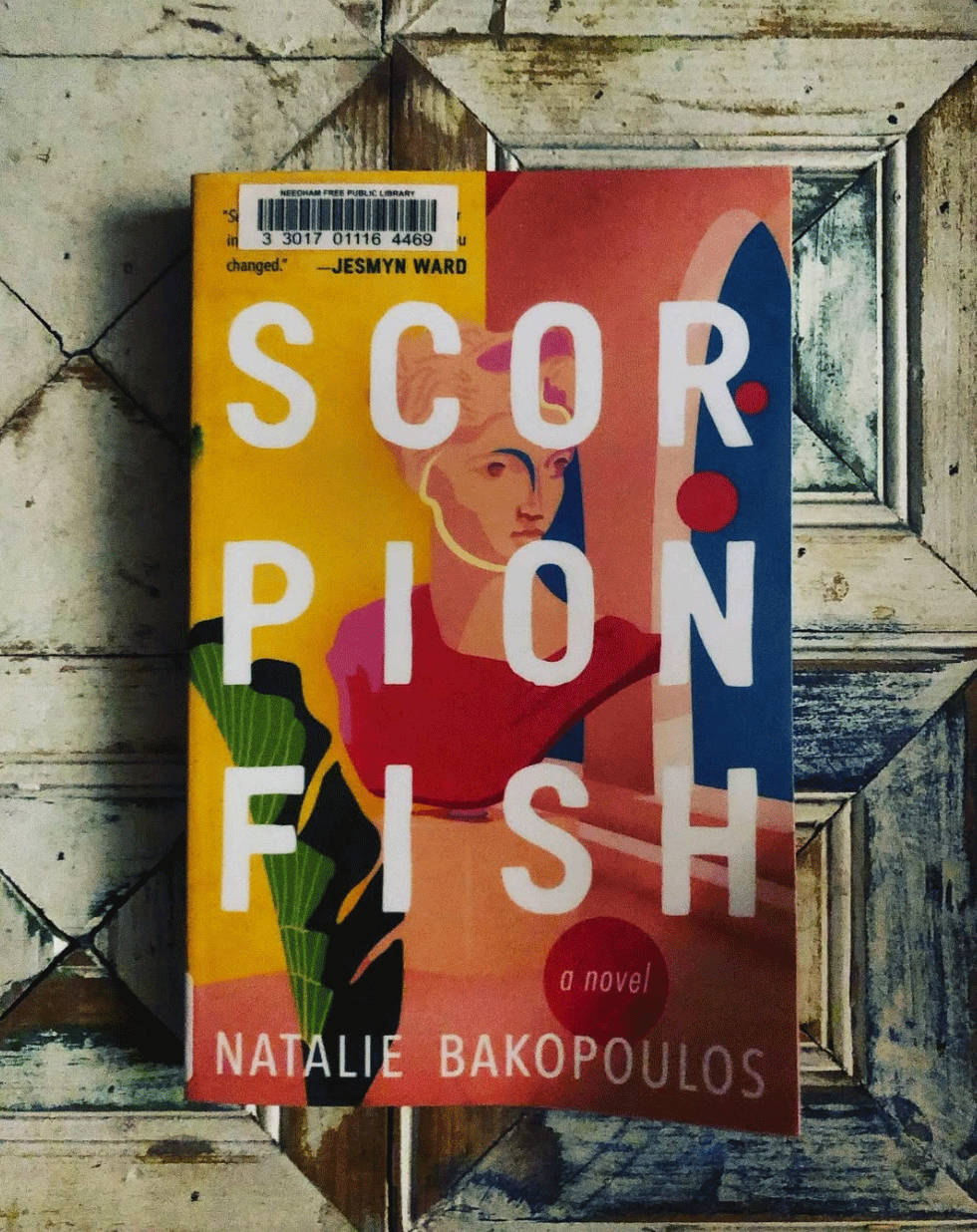Scorpionfish
I’ll just cut to the chase: Scorpionfish by Natalie Bakopoulos is so, so good. Dear Reese and Jenna, THIS is a perfect book to add to your respective “book clubs.”
You know the phrase “the personal is political,” right? It was historically used to describe “pro-Woman” movements, but if you parse the phrase, I’d like to think that the notion merely points to the fact that “political” things don’t happen in a vacuum – “politics” affects humans, after all. Scorpionfish so beautifully and skillfully touches upon both the Greek migrant crisis and the simultaneous financial crisis. But Bakopoulus’ novel isn’t “about” that. It’s about Mira – born in Greece and raised in Chicago – who feels a constant push-pull regarding her national identity, her romantic life, and her relationship with the American notion of “work” (she’s an ethnographer and professor).
I want to say this isn’t an “issue novel,” but, well, it is. Because “the personal is political.” Bakopoulus achieves this balance so well because I think she recognizes that one can’t separate oneself from setting. As the Captain explains to his American-born nephews after they ask about the “migration crisis” they’d been hearing about in the news, “I had only wanted to counteract some of that, inject some humanity into the inevitable process of migration.” What I love about Scorpionfish is that it doesn’t take the easy narrative of “you never know someone’s story” to write about Greece; she uses her protagonist Mira as a way to illuminate how something/someone subtly changes and morphs and questions. That’s life: It’s subtle, it’s nuanced, and it’s way more complicated than Americans (in particular) are often willing to explore.
Mira’s friend Dimitra says to her, “Sometimes you’re so first-world. So *white.* You think you have a solution to everything.” That’s the problem with so much literature that attempts to “tell the story” of a group or type of person. Scorpionfish’s strength is its successful storytelling about one woman and her “world” while allowing the complexities of “political life” to almost ethereally float above the plot lest the reader forget that this book is more than one character’s life.
originally published on instagram

